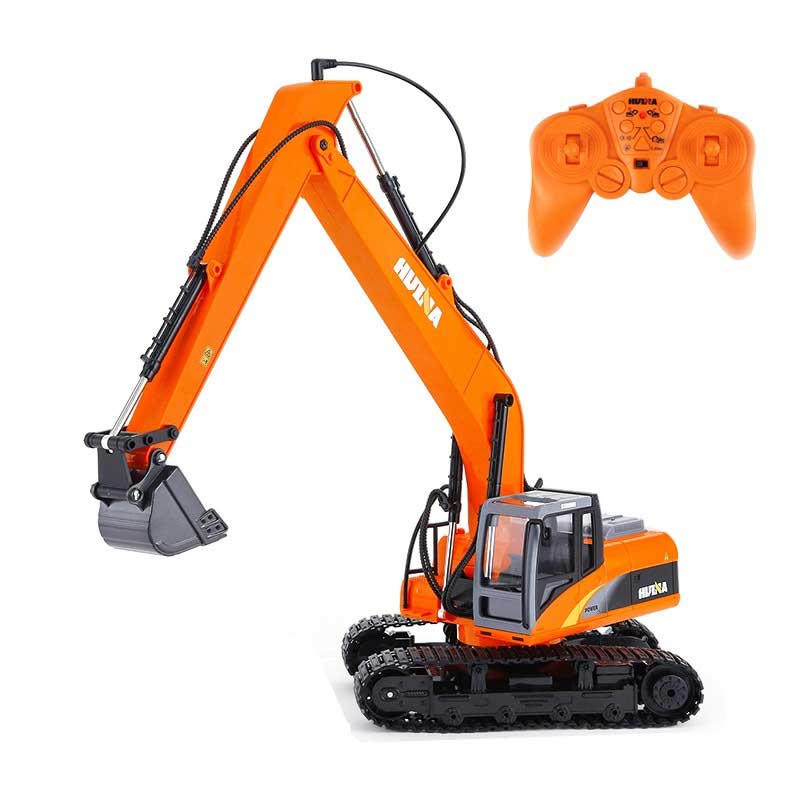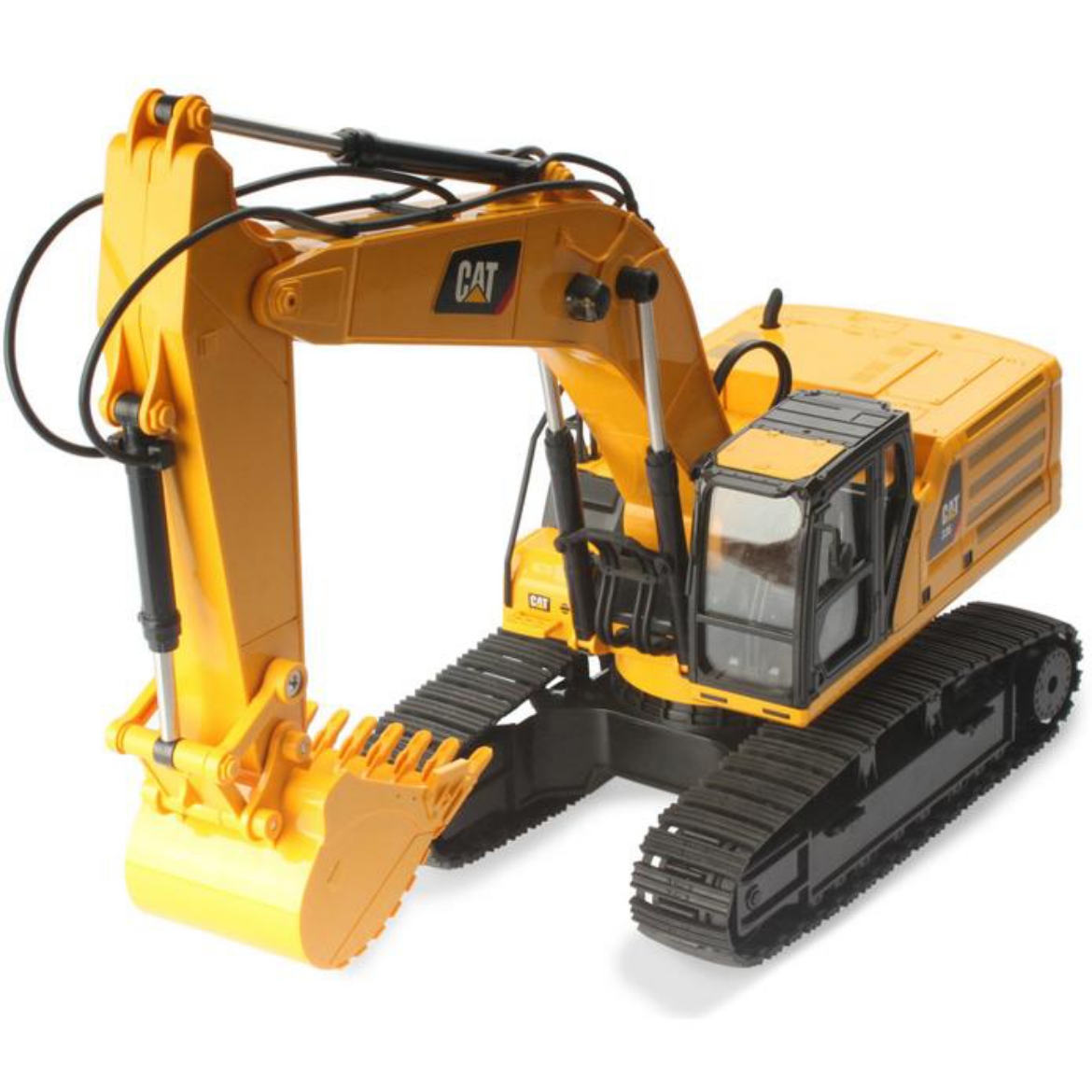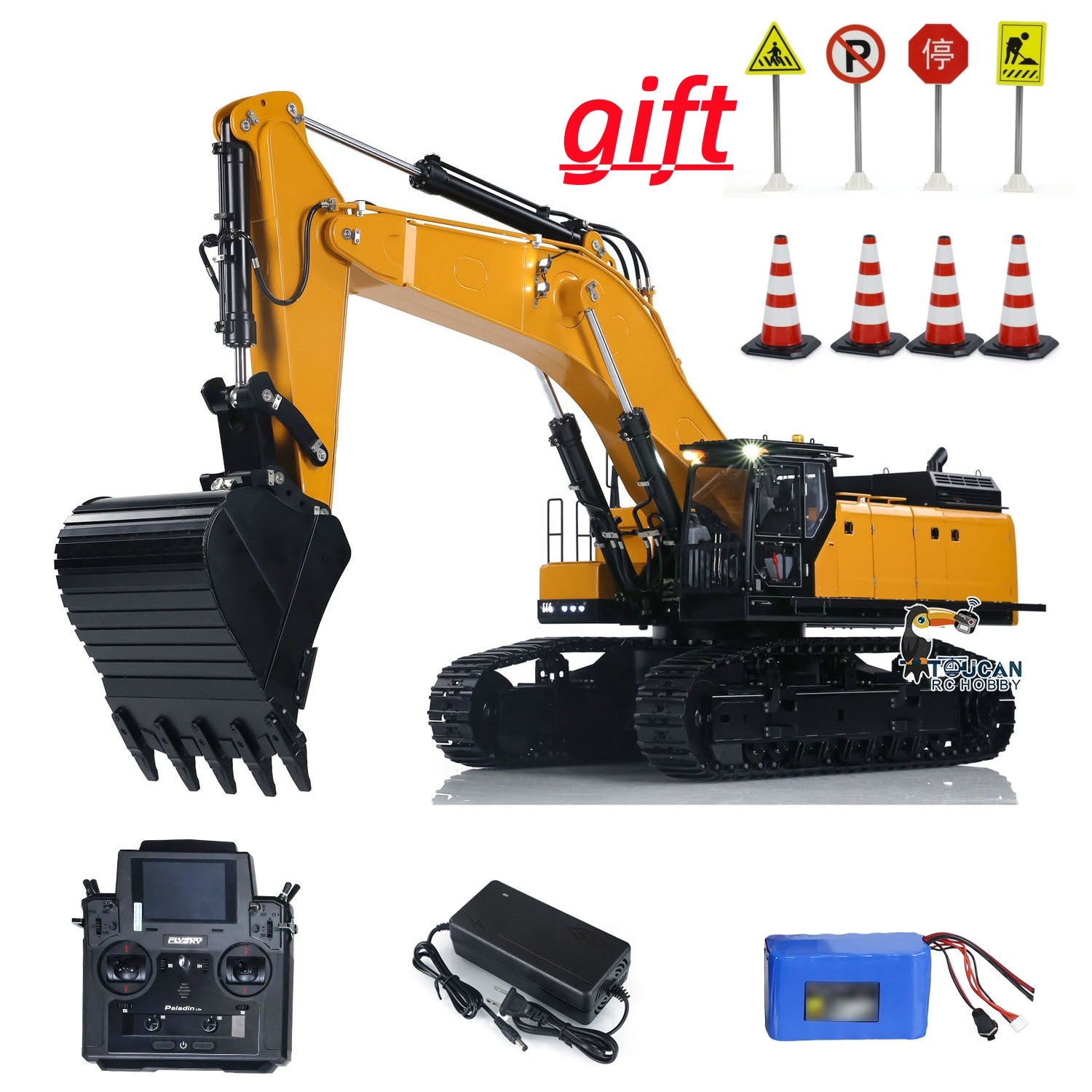Understanding Exactly How Excavator Works and Its Influence On Effectiveness
Excavators play an important function in building and mining operations, depending on an intricate interplay of hydraulic and mechanical systems. Their ability to do a range of jobs rests on both their layout and the technology integrated within. Recognizing these components can substantially impact functional effectiveness and productivity. As innovations remain to reshape the industry, one have to consider just how these modifications will certainly affect future practices and efficiency.
The Basics of Excavator Mechanics

The Role of Hydraulic Equipments in Excavators
At the heart of excavator procedure lies the hydraulic system, which plays an essential function in powering the maker's features and motions. This system uses pressurized hydraulic fluid to move energy, enabling numerous activities such as training, swinging, and digging. By harnessing the concepts of hydraulics, excavators can carry out jobs with impressive precision and pressure, enhancing total functional efficiency.The hydraulic system is composed of crucial elements, including pumps, cylinders, and valves, which collaborate to control the flow and direction of the fluid. When the driver engages the controls, the hydraulic liquid is guided to particular cylinders, converting the driver's commands into physical activity. This system permits responsive and smooth activities, which are crucial in building and construction and excavation atmospheres. double e volvo rc excavator. The efficiency of the hydraulic system straight influences the productivity and versatility of the excavator, making it an essential component in contemporary excavation processes
Trick Elements of an Excavator
Recognizing the key parts of an excavator is vital for grasping exactly how this powerful maker operates. An excavator includes a number of significant elements, consisting of the undercarriage, house, arm, boom, and bucket. The undercarriage gives stability and flexibility, commonly featuring tracks or wheels to browse numerous terrains. Your home consists of the engine and hydraulic systems, permitting the driver to control motion and power the equipment. The boom extends from your house, making it possible for vertical reach, while the arm connects to the bucket, facilitating digging and training operations.Additionally, the taxicab houses the operator, equipped with controls for exact handling. Each of these parts plays an essential duty in the excavator's total functionality, contributing to its performance and effectiveness on building and construction sites. Recognizing these parts aids in maintaining and maximizing excavator efficiency, making sure jobs are finished securely and effectively.
Accessory Adaptability and Its Advantages
Attachment adaptability is an important element of excavators, making it possible for drivers to change between different devices customized for details jobs. This adaptability not only boosts work efficiency but also adds to cost-effectiveness by decreasing the requirement for numerous machines. Understanding the different sorts of attachments available can significantly affect the general performance and functionality of an excavator on job sites.
Kinds of Add-ons
While excavators are mostly recognized for their digging abilities, their true adaptability hinges on the large selection of add-ons readily available. These add-ons boost the excavator's capability, permitting it to carry out various tasks past excavation. Usual attachments consist of containers (for digging and scooping), hydraulic thumbs (for comprehending products), and augers (for piercing holes) Grapples are made use of for relocating and taking care of debris, while rippers can separate tough surfaces. Other specialized attachments, such as plates and plows, make it possible for excavators to adjust to particular task demands. This diversity not only boosts the maker's utility throughout different fields, including building and construction, landscape design, and demolition, yet likewise enables drivers to tailor their tools to fulfill specific task demands successfully.
Enhanced Work Performance
Making the most of work efficiency is a main benefit of making use of numerous excavator attachments. Different attachments enable an excavator to perform numerous jobs without requiring to switch devices, conserving important time and labor. Using a hydraulic hammer can break concrete while a pail accessory can excavate dirt, allowing a seamless workflow. This adaptability minimizes downtime linked with devices adjustments and enhances productivity on-site. Furthermore, specialized add-ons boost precision in jobs such get more as grading or landscape design, causing better end results. The capacity to adjust to numerous job demands not only improves procedures yet additionally decreases the demand for added equipment, ensuring that projects are finished promptly and properly. Overall, attachment flexibility considerably adds to increased job efficiency in excavation work.
Cost-Effectiveness and Versatility
Cost-effectiveness is a significant advantage of making use of versatile excavator attachments. These accessories enable a solitary excavator to perform numerous tasks, decreasing the need for added equipment and labor - double e volvo rc excavator. By changing between pails, hammers, and grapples, operators can tackle various projects, from excavating to demolition, therefore making best use of tools utilization. This adaptability not just reduces operational prices but additionally lessens downtime connected with transforming equipment. In addition, the capability to tailor excavators with specialized attachments boosts efficiency, as they can efficiently take care of diverse jobs according to job demands. To end, the mix of cost-effectiveness and adaptability in excavator attachments adds to improved functional performance and resource allotment in building and construction and excavation jobs

Advanced Technology in Modern Excavators
Modern excavators are progressively outfitted with innovative innovation that transforms excavation procedures. Automation enhances operations, while boosted fuel efficiency minimizes operational prices. Furthermore, smart control systems boost precision and safety, noting a substantial advancement in excavation equipment.
Automation in Excavation Processes
As excavation modern technology progresses, automation has actually emerged as a critical part in improving performance and precision on work sites. Modern excavators are equipped with advanced automated systems that help with jobs such as grading, digging, and trenching with minimal driver intervention. These systems use sensing units, GPS, and maker discovering algorithms to assure exact positioning and deepness control, considerably reducing the margin for mistake. Furthermore, automation permits operators to concentrate on tactical decision-making instead than hands-on controls, causing boosted productivity generally. Such innovations not only improve operations yet also enhance security by decreasing human mistake in intricate operations. The integration of automation in excavation procedures stands for a considerable advancement in building and construction modern technology, driving the industry in the direction of greater performance and efficiency.
Boosted Gas Performance
Advancements in innovation have also caused substantial renovations in fuel efficiency for contemporary excavators. Modern machines are geared up with sophisticated engines that optimize power result while decreasing gas intake. These engines make use of ingenious burning modern technologies, such as turbocharging and straight fuel shot, to enhance efficiency and performance. In addition, light-weight materials in construction reduce total weight, enabling less power expense throughout operation. The intro of variable speed controls makes it possible for drivers to adjust engine efficiency according to certain jobs, additionally lessening fuel usage. As an outcome, these enhancements not just reduced operational prices but also add to ecological sustainability by decreasing exhausts. Generally, improved gas effectiveness in excavators is an essential growth that boosts productivity and financial practicality in the construction market.
Smart Control Systems
While operators navigate progressively complicated job sites, smart control systems in excavators have become essential devices for boosting efficiency and accuracy. These advanced innovations utilize sensing units and formulas to keep an eye on numerous specifications such as load weight, terrain conditions, and operational performance. By immediately changing hydraulic functions, clever systems enhance machine performance, bring about improved efficiency and lowered wear on elements. In addition, operators take advantage of user-friendly user interfaces that give real-time feedback and diagnostics, permitting educated decision-making. This combination of modern technology not just simplifies procedures yet also reduces human error, adding to safer workplace. As the building and construction industry remains to develop, wise control systems will certainly play an important duty fit the future of excavator about his performance and performance.
Enhancing Operational Efficiency With Excavators
Excavators play a crucial duty in enhancing operational effectiveness across different construction and excavation tasks. Their convenience permits numerous tasks, including excavating, product, and training handling, which improves operations and minimizes the requirement for extra equipment. With powerful hydraulic systems, excavators can perform sturdy jobs with precision, significantly reducing the time required to full tasks. The combination of sophisticated innovation, such as GPS and automated controls, further maximizes their operation, enabling operators to achieve greater accuracy and reduce product waste. Furthermore, modern excavators are made to take in less gas and lessen emissions, contributing to both cost financial savings and environmental sustainability. By utilizing excavators properly, building teams can boost productivity, fulfill job due dates, and boost general website administration. This multifunctionality and efficiency make excavators indispensable devices in the modern-day building landscape.
The Future of Excavators in Building and Mining Industries
As the building and my blog construction and mining markets evolve, the future of excavators is positioned for substantial improvement driven by technological advancement and transforming operational needs. Breakthroughs in automation and man-made intelligence are improving excavator capacities, allowing for boosted precision and effectiveness in procedures. Independent excavators are emerging, minimizing the demand for human intervention and lessening the threat of accidents.Moreover, the integration of telematics and IoT innovation makes it possible for real-time monitoring of maker performance and predictive maintenance, enhancing uptime. Environment-friendly layouts, consisting of hybrid and electrical designs, are acquiring grip, aligning with sustainability goals within the industry.Additionally, using advanced materials and lighter layouts improves fuel efficiency while keeping performance standards. As these patterns progression, excavators will certainly play an essential function in meeting the boosting demands for efficiency and security in building and construction and mining, ultimately changing functional landscapes.
Regularly Asked Concerns
How Do Climate Condition Affect Excavator Efficiency?

Weather conditions significantly affect excavator efficiency, as rain and mud can hinder grip and security, while severe temperature levels may affect hydraulic systems. Operators should adjust to these variables to guarantee perfect functionality and safety and security during procedures.
What Safety And Security Procedures Should Operators Follow While Utilizing Excavators?
Security procedures for excavator operators consist of wearing ideal individual protective tools, carrying out pre-operation assessments, making sure correct communication with ground personnel, keeping a secure distance from overhanging risks, and sticking to established operational protocols to protect against accidents.
Just How Typically Should Excavators Be Kept for Optimal Efficiency?
Excavators need to be preserved routinely to ensure peak efficiency, typically every 250 operating hours or as specified by the maker. Regular checks enhance dependability, stop unanticipated break downs, and expand the life-span of the equipment.
What Is the Average Life-span of an Excavator?
The ordinary lifespan of an excavator generally ranges from 10,000 to 15,000 hours of operation. Aspects influencing longevity consist of upkeep techniques, operating conditions, and the quality of the device itself, influencing total productivity and efficiency.

Can Excavators Run on Irregular Terrain Properly?
Excavators can operate successfully on irregular surface as a result of their verbalized designs and adjustable tracks. These functions permit them to maintain security and traction, enabling reliable operation in challenging atmospheres frequently experienced in building and landscaping tasks. Each of these parts plays a crucial role in the excavator's general performance, contributing to its effectiveness and performance on construction websites. Maximizing job efficiency is a primary benefit of utilizing various excavator attachments. While operators browse progressively complex job websites, clever control systems in excavators have arised as vital tools for enhancing efficiency and precision. Excavators play a crucial function in improving operational effectiveness across various building and excavation jobs. Advances in automation and artificial knowledge are improving excavator capabilities, enabling for improved accuracy and performance in procedures.